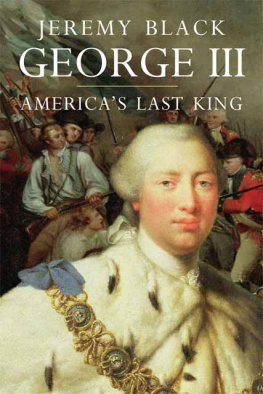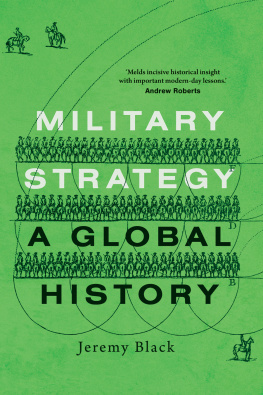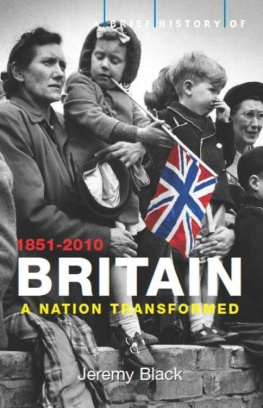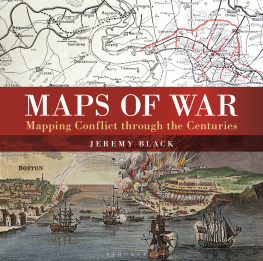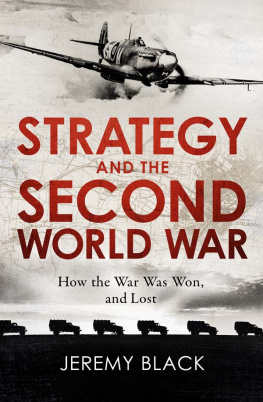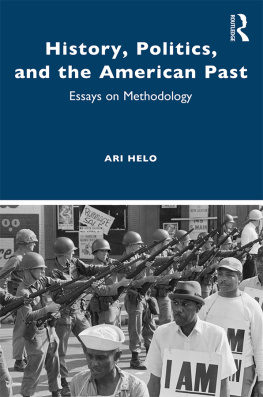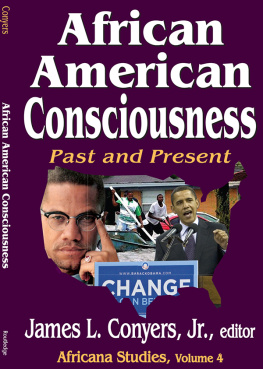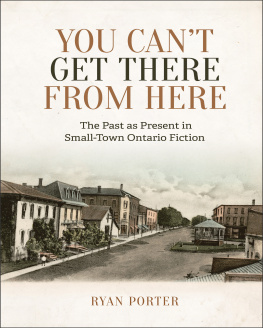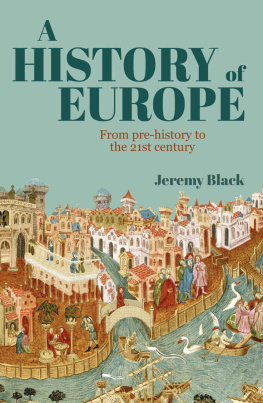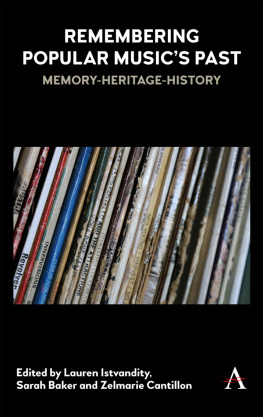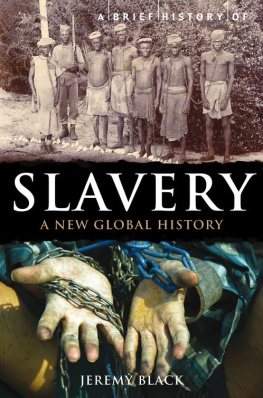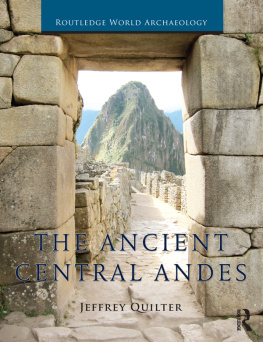This book is a publication of
INDIANA UNIVERSITY PRESS
Office of Scholarly Publishing
Herman B Wells Library 350
1320 East 10th Street
Bloomington, Indiana 47405 USA
iupress.indiana.edu
2015 by Jeremy Black
All rights reserved
No part of this book may be reproduced or utilized in any form or by any means, electronic or mechanical, including photocopying and recording, or by any information storage and retrieval system, without permission in writing from the publisher. The Association of American University Presses Resolution on Permissions constitutes the only exception to this prohibition.
The paper used in this publication meets the minimum requirements of the American National Standard for Information SciencesPermanence of Paper for Printed Library Materials, ANSI Z39.481992.
Manufactured in the
United States of America
Cataloging information is available from the Library of Congress.
ISBN 978-0-253-01675-1 (hardback)
ISBN 978-0-253-01681-2 (paperback)
ISBN 978-0-253-01687-4 (ebook)
1 2 3 4 5 20 19 18 17 16 15
Preface
THE WEIGHT OF THE PAST IS HEAVY AND INSISTENT, AT TIMES brutally apparent, but frequently more prone to insinuate and influence. This weight is presented as positive offering continuity and lessons from experience; and yet also as negative, indeed, a curse. As an instance of the latter, empowerment through grievance is especially damaging, in particular, locating both grievance and empowerment in a misleading, as well as destructive, historical context. Linked to this empowerment is the prevalence of history wars, disputes about how to present the past, which are the heavily historicized equivalent of the American culture wars. These disputes take the could of academic discussions about how the past could be presented, and turn it into a should of how the past should, indeed must, be explained. In this context, the past becomes a validation for the present and, as such, a matter of great significance. History, whose muse is Clio, is thereby made the ammunition of politics, and this ammunition is potent precisely because the past serves as the basis for ideas and practices of identification.
This use of the past is contested and, therefore, there is a variety, even confusion, in this book. This variety reflects not only these history wars but also, more broadly, the Janus-faced character of the past, as, at the same time, the solace of continuity and the sore of grievance. Moreover, whether or not they are affected in these cases by politics, memory and history vie as interpreters, each able to take the approach of continuity or that of grievance. In the following study, I focus on some of these aspects of what is, at once, the kaleidoscopic variety of readings offered of the past and yet also, more narrowly, a tension between readings that unite and those that divide. These readings focus on historiography in terms of the content of the past that is offered, and its political implications, and not on the theoretical frameworks of the historical methods employed; although these methods can play a major role in the direction of research, and thus the content, that is offered.
This book takes forward interests I have developed in earlier studies, and is aimed in particular at student courses on historical method and public history. There is, in , a long historical section, an account of history-writing from the ancient world to the here and now, in which I underscore the differences and developments in traditions of history writing. The choice of what to cover in these chapters reflects the need to adopt a multiple perspective on developments in this writing, rather than to envisage simply a central intellectual and political course for historiography. The latter approach, with its assumption that it is obvious what must be covered, is of limited value at the global level, where the range in traditions of history-writing is highly pronounced.
The focus in this book, in , I turn to the possible future use of the then past, which is a way to open up thought about how we do the same today.
Bridging public history and historiography, this book is an ambitious account of the engagement with the past across world history, one focused on history wars. This book discusses the links between the popular and academic approaches to the events and relevance of the past, and also considers their contrasts. In my discussion of popular history, my emphasis is on the discussion of the past by ministers, other politicians, and opinion leaders for example the editors of newspapers and not by academics. That emphasis is not intended to ignore the many practices in which scholarship is engaged in institutions that present history to the public, such as museums, memorials, historical sites, national parks, libraries, schools, historical societies, and films. Indeed, some of this scholarship, and certain aspects of the heritage industry connect with this discussion of popular history by ministers, politicians, and commentators, not least with debates about the merits of continuity or change.
There is an instructive problem in the use of the term public history. In the United States, as in Britain, this term commonly refers to history as it is presented at public sites. In practice, in these countries, public history usually represents a consensus view at a given point of time. However, it might also display a highly politicized view of what the public ought to think about a particular historical event, as is the case with many American Civil War monuments. Such a politicized view can reflect, as well as lead to, debate and dissension.
The use of the term to refer to the presentation at public sites clashes with another understanding of public history, that of history as it is deployed by news outlets, pundits, and politicians. They aim to create a consensus about how their readers and listeners ought to understand their countrys past, while frequently decrying other views. There, indeed, is a possible confusion with the official and institutional usage of history referred to above in this very paragraph. It is instructive that the especially helpful publisher suggested dropping the term public history except when referring to history as it is presented in public contexts and use something along the lines of the employment of a selective interpretation of the past used for partisan purposes propaganda.
It is unclear, however, as this book will demonstrate, why public history, in the sense of the history produced by public institutions, should be treated as necessarily less partisan than that deployed by politicians, pundits, and news outlets. That is certainly not the perspective gained from a global approach. Popular history might be seen as an acceptable alternative term to public history to describe the history thus deployed by politicians and others; but it is unclear why the term public should be detached from the people and applied simply to state institutions. As a related point, institutions can be privately owned or managed. A range of issues and practices certainly emerged over the twentieth century to engage and negotiate spaces between academic historians and the public, and there is an important literature linked to this engagement. One of the central challenges of that literature, of those debates about presentation, is how to deal with the contested perspectives that are a subject of this book. Historians indeed operate through advancing diverse perspectives. However, my focus is not on the academics, but on the politicians and the public, each of whom I see as more significant for historiography.


